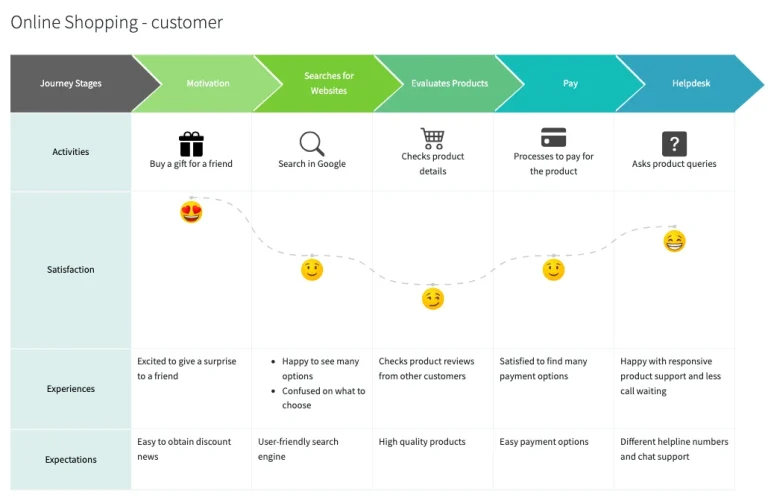
In the ever-evolving world of content marketing, standing out is no longer about being a jack-of-all-trades. It’s about becoming a master of one—or at least two—specific areas that align with your skills, interests, and market demand. This concept, known as niche discovery, is crucial for writers, marketers, and entrepreneurs looking to build a sustainable and impactful online presence. Whether you’re just starting out or looking to refine your existing strategy, learning how to zero in on your content focus can make all the difference.
This article will guide you through the process of identifying your niche, understanding its importance, and implementing a focused content strategy that drives engagement, builds authority, and opens up new opportunities.
What Is Niche Discovery and Why It Matters
Niche discovery refers to the process of identifying a specific area of expertise or interest that you can consistently create content around. It’s not just about choosing a topic—it’s about finding a segment of the market that you can serve better than anyone else. In the context of content marketing, this means selecting a subject that resonates with a particular audience, meets their needs, and allows you to showcase your unique voice and knowledge.
Why does it matter? Because in a crowded digital landscape, generic content gets lost. Search engines, algorithms, and audiences all favor content that is specific, relevant, and valuable. A well-defined niche helps you stand out, attract the right audience, and build trust over time.
For example, if you’re a writer who has written extensively about health and wellness, you’re not just writing for a general audience—you’re targeting people interested in fitness, nutrition, mental health, and more. This specificity makes it easier for brands to find and hire you, and it helps you establish yourself as an expert in your field.
How Niche Discovery Impacts SEO Performance
A focused content strategy has a direct impact on your SEO performance. When you target a specific niche, you’re more likely to rank for long-tail keywords that are less competitive but highly targeted. These keywords often have lower search volume but higher conversion rates because they reflect the intent of users looking for very specific information.
Additionally, a well-defined niche helps you build topical authority. Search engines like Google reward websites that consistently publish high-quality, in-depth content on a single topic. This not only improves your rankings but also increases the likelihood of earning backlinks, which further boosts your SEO.
Moreover, niche content tends to perform better in terms of user engagement. Readers who find content that speaks directly to their interests are more likely to spend time on your site, share your work, and return for more. This leads to improved dwell time, lower bounce rates, and better overall user experience—factors that are all important for SEO success.
Step-by-Step Implementation Framework
Finding your niche isn’t just about luck; it’s a process that involves self-reflection, research, and experimentation. Here’s a step-by-step framework to help you identify and focus your content strategy:
-
Define or Audit the Current Situation
Start by reviewing your past work. Look at your writing clips, social media posts, or any other content you’ve created. What topics do you keep coming back to? What subjects do you enjoy discussing? Even if you haven’t consciously chosen a niche, there may be patterns in your work that indicate where your strengths lie. -
Apply Tools, Methods, or Tactics
Use tools like Google Trends, SEMrush, or Ahrefs to analyze keyword competition and identify areas with demand but limited content. You can also look at competitor websites to see what niches they’re focusing on. Consider conducting surveys or engaging with your audience on social media to gather insights into what they care about most. -
Measure, Analyze, and Optimize
Once you’ve identified a potential niche, start creating content around it. Track metrics like traffic, engagement, and conversions to see what works. Use analytics tools to understand which types of content resonate with your audience and adjust your strategy accordingly. Don’t be afraid to experiment and refine your approach over time.
Real or Hypothetical Case Study
Let’s say you’re a freelance writer who has been covering travel, food, and lifestyle topics for several years. While you’ve had some success, your content hasn’t been driving consistent traffic or client inquiries. After a deep audit of your past work, you notice that a significant portion of your articles focus on budget travel tips and local food experiences. You decide to narrow your focus to “budget travel and hidden culinary gems.”
You begin creating content specifically around this niche, using long-tail keywords like “affordable travel destinations with great food” and “off-the-beaten-path restaurants.” Over time, your content starts ranking higher in search results, and you receive more inquiries from travel brands and food bloggers looking for writers who specialize in this area. Within six months, you’ve landed several high-paying clients and built a loyal following.
This case study illustrates how focusing on a specific niche can lead to measurable improvements in visibility, engagement, and revenue.
Tools and Techniques for Niche Discovery
To streamline the process of identifying your niche, consider using the following tools and techniques:
- Google Trends: Helps you discover trending topics and see how interest in certain keywords changes over time.
- SEMrush or Ahrefs: Useful for analyzing keyword competition and identifying gaps in the market.
- Social Listening Tools (e.g., Brandwatch or Mention): Allow you to monitor conversations around specific topics to find what your audience is talking about.
- SurferSEO: Great for keyword clustering and semantic scoring to ensure your content is optimized for both users and search engines.
- Canva or Adobe Express: Useful for creating visual content that supports your niche and enhances your brand identity.
These tools can help you gather data, test ideas, and refine your strategy based on real-world insights.
Future Trends and AI Implications
As AI continues to shape the future of content marketing, the importance of niche discovery will only grow. With the rise of personalized search, voice search, and multimodal content, audiences are increasingly seeking highly specific, tailored experiences. AI-powered platforms like Google’s Gemini or Microsoft’s Copilot are already helping users find content that matches their exact needs.
This shift means that content creators who focus on niche areas will have a distinct advantage. By building authority in a specific domain, you’ll be better positioned to leverage AI tools and platforms to reach the right audience at the right time. Additionally, as AI becomes more integrated into content creation, having a strong niche will help you stand out from automated or generic content.
Key Takeaways
- Niche discovery is essential for standing out in a crowded digital space.
- Focusing on a specific area of expertise helps build authority, drive engagement, and improve SEO.
- Use tools like Google Trends, SEMrush, and social listening platforms to identify high-potential niches.
- Experiment, measure, and refine your strategy based on real data and audience feedback.
- Embrace the power of AI to enhance your niche-focused content and stay ahead of trends.
By taking the time to identify and focus on your content niche, you’re not just creating content—you’re building a brand, a community, and a legacy. The journey might take time, but the rewards are well worth it.
Meta Title: Niche Discovery: How to Identify and Focus Your Content Strategy
Meta Description: Learn how to zero in on your content focus and build a successful strategy that drives engagement, authority, and growth.
SEO Tags (5): content marketing, niche discovery, content strategy, SEO, digital marketing
Internal Link Suggestions: Parameter #4: Keyword Clustering – The Secret to High-Performing SEO Content, Parameter #7: User Intent Analysis – Mastering the Art of Search Queries
External Source Suggestions: https://www.searchenginejournal.com, https://moz.com, https://backlinko.com









